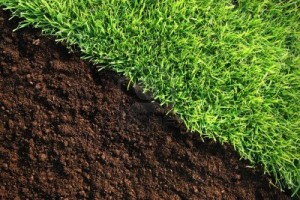 So you want fertilize your lawn. But you also want to avoid using unnecessary chemicals because of their potentially hazardous effects. So what can you do? There are several organic solutions for feeding your lawn without sacrificing environmental health. Most organic fertilizers are made from animal by-products, most often from animal dung, say cow or bat manure, for example. But there are a variety of other options as well.
So you want fertilize your lawn. But you also want to avoid using unnecessary chemicals because of their potentially hazardous effects. So what can you do? There are several organic solutions for feeding your lawn without sacrificing environmental health. Most organic fertilizers are made from animal by-products, most often from animal dung, say cow or bat manure, for example. But there are a variety of other options as well.
Types of Organic Fertilizers
The two basic types of organic lawn fertilizers are organic and synthetic organic. Organic fertilizers contain animal, plant, or fish by-products. They come in either a granulated form, which can easily be distributed over your lawn using a fertilizer spreader, or they can be found in liquid form. Liquids are just as effective, but they can be harder to spread evenly over a lawn.
Synthetic organic is formed using “urea”. Urea is a chemical compound found in urine that can be synthesized. It contains nitrogen, which is an important nutrient in lawn care products. The reason synthetic urea is considered organic is because it contains carbon in its structure.
Organic Fertilizers by Season
The nutrient value of organic fertilizers can vary greatly depending on the organic matter used to produce the fertilizer. Those fertilizers that are high in organic matter, but low in NPK (nitrogen, phosphorus and potassium) can be used more heavily on your lawn. This type of lawn fertilizer delivers nitrogen at a slower release rate and is usually considered a summer fertilizer. They are helpful in feeding the large microbe population of your lawn.
Spring lawn fertilizers contain a much lower amount of organic matter because the microbe population is generally dormant during the early spring months and don’t require as many nutrients. Some spring fertilizers contain pre-emergent herbicides to help prevent crabgrass and other weeds from growing.
Fall organic lawn fertilizers have higher organic matter content than spring fertilizers and may also contain synthetic nitrogen sources, which are great for using on late season cool weather grasses or on warm season grasses during the summer. Using an organic fertilizer helps feed your lawn naturally, but also helps keep artificial chemicals out of the environment.
Author: Philip Brown is a lover of green, healthy lawns. A former lawn care services professional, Philip now spends his time sharing what he knows with others and blogging about it at TruGreen.

 Everyday Toxins: a Simple Guide to Gloves Free Kitchen
Everyday Toxins: a Simple Guide to Gloves Free Kitchen Unique Artificial Light System Delivers Realistic Illumination Through an Intelligent False Skylight
Unique Artificial Light System Delivers Realistic Illumination Through an Intelligent False Skylight 3 Green Lighting Tips Beyond the Obvious
3 Green Lighting Tips Beyond the Obvious
Are there certain kinds of fertilizers that are potentially dangerous to kids’ health. What about non-organic fertilizers? Thanks!
~lawn love, http://lawnlove.com
Hello Lawn Love, you’re the professional promoting your service, feel free to chime in. 🙂
Well, there are lots of talk about this but for sure, one has to be careful in choosing what he/she uses. We definitely support use of organic fertilizers. But we also offer both traditional and organic fertilizers, and we are more than willing to go the all-organic route if that’s what our customers want.
Could you elaborate a bit when traditional fertilizers are a better option than organic? Are there certain plants or soil that do not respond to organic? Is organic as effective as standard?
Haha. Okay. It’s actually pesticides that pose a problem. Lawn Love supports those who want to go 100% organic with their lawn care. I believe this would be the best choice. For those who want detailed answers to their questions, they can get in touch with us anytime. Our digits are on our website. Thanks Tadas!
Haha, I know its pesticides that is the problem, that is what the article is all about. I was just hoping for more expertise rather than all self-promotional content. 😉